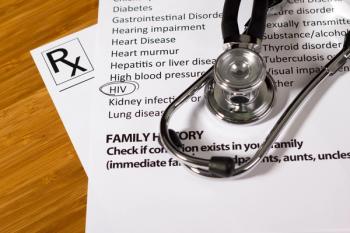
Survey: Changes in PrEP Utilization, Risk Behaviors During COVID-19 Pandemic
Survey results on PrEP access and utilization during COVID-19 shelter-in-place orders presented at the 23rd International AIDS Conference.
Many pre-exposure prophylaxis (PrEP) users reported voluntarily discontinuing therapy during shelter-in-place orders (SIPOs) amid the coronavirus disease 2019 (COVID-19) pandemic due to low perceived HIV risk, according to an online survey conducted by The American Academy of HIV Medicine in partnership with Gilead Sciences HIV Medical Affairs.
The survey findings were part of the data presented online by Gilead at the 23rd International AIDS Conference on the effect of COVID-19 SIPOs and PrEP utilization on HIV prevention strategies and associated risk behaviors.
The survey, which aimed to capture the potential changes in behavior among PrEP users and prescribers during SIPOs, included 598 total respondents: 409 PrEP users and 189 PrEP prescribers.
According to the results, although the majority of prescribers reported recommending no change in PrEP regimen, approximately 33% of PrEP users discontinued therapy voluntarily, with 85% noting low perceived HIV risk associated with decreased sexual activity as the reason. The survey data indicated that of those who discontinued PrEP, only 8% cited inability to access PrEP medications. Despite limitations caused by SIPOs, 95% of prescribers were able to successfully prescribe PrEP.
Additionally, PrEP users reported changes in sexual behavior associated with HIV risk, with 90% citing no or fewer sexual partners and no or fewer sexual events during SIPOs.
Of the providers who responded to the survey:
- Sixty-eight percent implemented telemedicine practices.
- Fifty-nine percent indicated refilling PrEP medications while postponing routine HIV/sexually transmitted infection (STI) and laboratory tests.
- Fifteen percent opted to completely forgo testing and lab monitoring.
Additionally, of the 20% of responding providers who encountered PrEP users with suspected STIs for which they could not obtain a test, 47% treated STIs empirically.
“Reducing the number of new HIV transmissions and ensuring access to critical HIV prevention services must remain a public health priority during this challenging time,” Bruce Packett, executive director of The American Academy of HIV Medicine, said in a statement. “These data demonstrate the crucial role that technology-enabled care can play in helping facilitate the safe and timely delivery of critical public health services. My hope is that clinics and HIV prevention providers can continue to adapt to changing circumstances by offering expanded use of telehealth services and other innovative tools to help meet the evolving needs of people at risk for HIV.”
Further, in the separate DISCOVER trial, results revealed no changes in participant behavior regarding the number of sexual partners; condomless, insertive anal sex partners; or condomless, receptive anal sex partners from baseline through 96 weeks of follow-up. DISCOVER is an ongoing multi-center randomized controlled trial evaluating the safety and efficacy of emtricitabine 200 mg/tenofovir alafenamide 25 mg (Descovy) for PrEP in men and transgender women who have sex with men and are at risk for sexually acquired HIV infection. According to Gilead, the findings suggest that an increase in risk behavior due to a reduction in perceived risk did not occur during the trial.
Reference
Gilead Sciences Presents Survey Findings on PrEP Access and Utilization in the US During COVID-19 Shelter-in-Place Orders. News Release. Gilead; July 8, 2020. Accessed July 8, 2020.
Newsletter
Pharmacy practice is always changing. Stay ahead of the curve with the Drug Topics newsletter and get the latest drug information, industry trends, and patient care tips.























